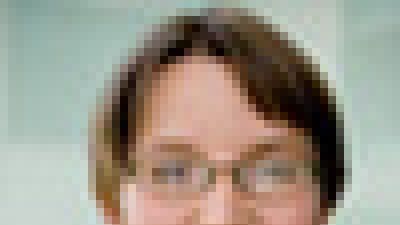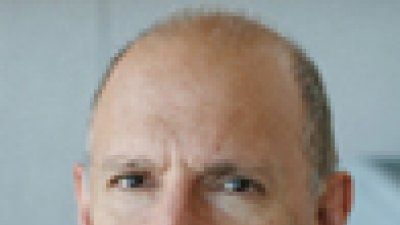University of California San Francisco
-
-
Pricier Therapy No Better for Early Prostate Cancer
-
Most Breech Births Are Now by C-section: Study
-
UCSF Chancellor Discusses "New Social Contract" for Patients with The Wall Street Journal
<p>UCSF Chancellor Susan Desmond-Hellmann spoke with <a href="http://blogs.wsj.com/health/2012/04/17/working-toward-a-new-social-contract-for-health-care/" target="_blank"><em>The Wall Street Journal</em></a> reporter Amy Marcus about her vision of a “new social contract” for patients participating in the health care system.</p>

-
Brain Cancer Vaccine Shows Promise
A new brain cancer vaccine tailored to individual patients by using material from their own tumors has proven effective in a multicenter phase 2 clinical trial at extending their lives by several months or longer. The patients suffered from recurrent glioblastoma multiform — which kills thousands of Americans every year.

-
Hospital Readmission Rates Misleading, UCSF Medical Center Study Finds
A new UCSF Medical Center study finds that publicly reported “hospital readmission rates” often reflect problems like hospital-acquired infections or complications from surgery that may be misleading to patients.

-
UC HIV Program Funds 3 Prevention Projects Using Gilead Drug
-
Working Toward a New Social Contract for Health Care
-
UC Nobel Laureate Stan Prusiner, MD, Gives Rare Public Lecture on Alzheimer's
-
Spotlight: Kirsten Thompson
Spotlight on Kirsten Thompson, of the Bixby Center for Global Reproductive Health in the School of Medicine’s Department of Obstetrics & Gynecology and Reproductive Sciences.

-
Value of Genomics and Personalized Medicine Is Wrongly Downplayed
<p>A recent <em>New York Times</em> online headline, "Study Says DNA's Power to Predict Illness is Limited," explains that your genome is not your destiny. Who’d have thought? Many scientific experts in human genetics, for starters.</p>

-
The Pros and Cons of Rx Robotics
-
UCSF Chancellor to Celebrate Excellence in Education in Commencement Address
<p>Chancellor Susan Desmond-Hellmann will celebrate excellence in education at UCSF when she delivers her 2012 commencement address to be webcast live on Tuesday, April 24.</p>

-
An Achilles Heel of AML
The key to treating one of the most common types of human leukemia may lie within mutations in a gene called FLT3, according to new research led by physician-scientists at the University of California, San Francisco (UCSF) Helen Diller Family Comprehensive Cancer Center.

-
What May Have Caused an Argentine Baby to Be Mistakenly Declared Dead?
-
New Pill Recognition Software Has Implications for Emergency and Clinical Settings
<p>A UCSF professor and medical student are working together to develop a mobile application that can rapidly identify pills based on color, shape, and imprint to provide real-time identification of drugs in the field or emergency room.</p>

-
UCSF Project Yields Major Resource for Scientific Research
One of the ultimate ways of understanding what impact any particular gene has in human health or disease is to disrupt it—knocking it down or wiping it out in a worm, fly or mouse and gauging what happens next.

-
Effectively Spreading the Word on your Research

-
Trust Issues: Dealing with Academia
-
UC President Releases Statement on UC Davis Pepper-Spray Report
UC President Mark Yudof looks forward to working with UC Davis Chancellor Linda Katehi to repair the damage caused by the incident involving the use of pepper spray on students on Nov. 18, 2011.

-
UCSF Farmers' Market at Mission Bay Returns April 11
<p>UCSF’s Campus Life Retail Services and Pacific Coast Farmers’ Market Association (PCFMA) are proud to welcome back the Farmers’ Market at Mission Bay on Wednesday, April 11.</p>

-
UCSF Chancellor Issues Call-To-Arms to Patient Advocates
In November 2011, a National Academy of Sciences committee issued a report calling for the creation of a “Google Maps”-like data network intended to revolutionize medical discovery, diagnosis and treatment. Today, the co-chair of that committee, UCSF Chancellor Susan Desmond-Hellmann, MD, MPH, is issuing a call-to-arms to patient advocates to help make that idea a reality.

-
To Tweet, or Not to Tweet: Physicians Misusing the Internet
<p>It’s a brave new world online. As the influence of social media widens, the lines between users’ personal and professional lives are blurring. Doctors are no exception. According to a new study published in the <em>Journal of the American Medical Association (JAMA)</em>, violations of online professionalism are prevalent among physicians. The study found that 92 percent of state medical boards in the United States have received reports of violations ranging from inappropriate contact with patients to misrepresentation of credentials.</p>

-
EKG Heart Test May Predict Risk in Older Adults
-
New MRI Technique May Predict Progress of Dementias
A new technique for analyzing brain images offers the possibility of using magnetic resonance imaging (MRI) to predict the rate of progression and physical path of many degenerative brain diseases, report scientists at the San Francisco VA Medical Center and the University of California, San Francisco.

-
EKG Can Help Predict Heart Attacks in Healthy Elderly People
Can a simple diagnostic test used to measure a heart’s electrical activity help predict heart attacks? And can that knowledge help doctors reroute their patients away from coronary heart disease?

-
Disaster Resilience Part of Sustainability, Too
-
Team Approach to Individualized Childbirth at New Mission Bay Women's Hospital
<p>The new Women’s Specialty Hospital at UCSF Medical Center at Mission Bay will offer abundant opportunities to build on the collegiality UCSF already fosters between patient and provider.</p>

-
Knowledge Is Power
-
EKG Finds Heart-Attack Risk in Some Seniors
